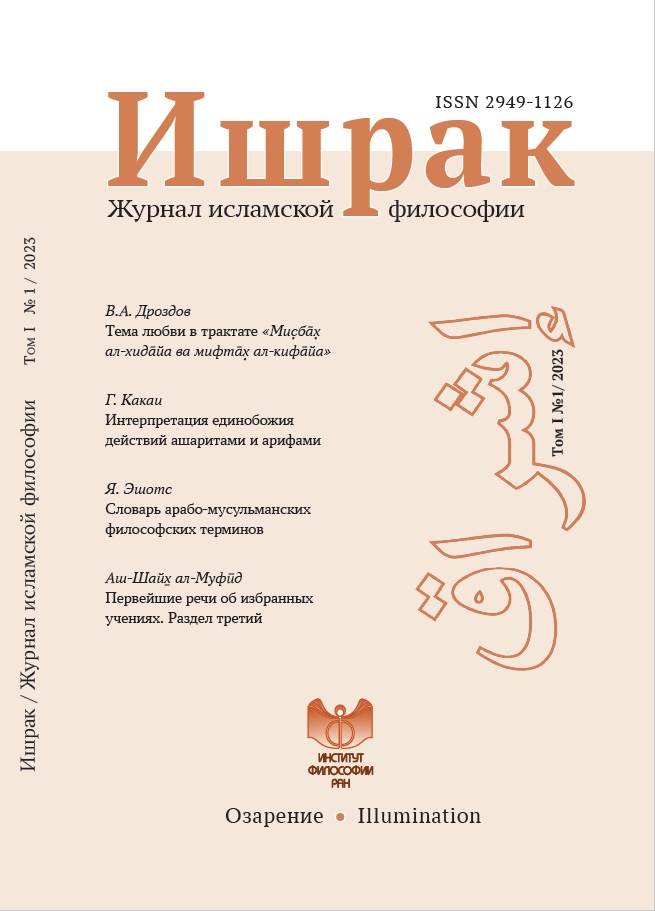The Interpretation of “Tawḥīd al-Afʿāl” in Asharism and Irfan
Keywords:
Monotheism, Sufism, Irfan, Asharism, Ibn ʿArabī, al-Ġazālī, Act, DeterminismAbstract
The unity of actions issue was discussed in a number of researches sometimes in general, other times as a mystical doctrine of concrete authors as Ibn ʿArabī, Hafez or Rumi. Usually such works deal with the attitude of the Muslim mystics to the Aš’ariyyah School. In particular, scientists still argue whether we can treat Rumi as an Ashari thinker or not: while some scholars speak about the Asharites and Rumi’s views identity, others are sure, that their comparison itself evidences superficial acquaintance of the ones who compare with the Asharism and Irfan. One of the most special teachings of the Asharites, basic for a number of their theological concepts, is the teaching about the subjectiveness of good and ugly (ḥusn wa qabḥ), opposite to the aesthetic objectivism of Muatazilites. The article takes into consideration the point of the generally wary attitude of Sufi theorists to the mystics-Asharites. For example, though Ibn ʿArabī respects the Asharite al-Ġazālī a great deal, and even quotes hadiths by his works, he treats him mostly as an ascetic but not a mystic. In the Greatest Shaikh’s opinion, the language of certain places in the works by al-Ġazālī characterizes him not as an enlightened mystic, but as one of the ordinary tariqat members (ʿawām). Consequently, the paper author notices a number of the theoretical differences between the Asharite Kalam and Irfan; it also disproves a stereotype of the theological determinism reception by the Mutakallims and Sufis. The paper’s author concludes that the two schools do not agreewhether it is possible to treat the God as the only one actor of the created world or not.


